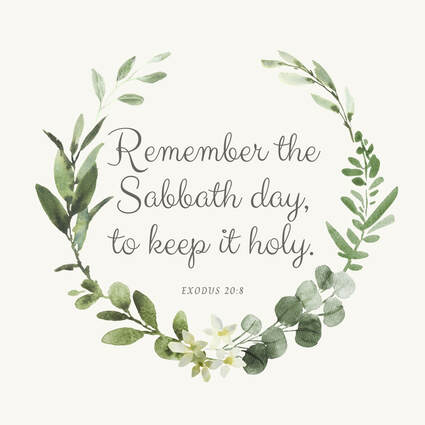
Sunday, October 22, 2023
First Congregational Church of Cheshire
© the Rev. Dr. James Campbell
Matthew 22:15-22
Then the Pharisees went and plotted to entrap him in what he said. So they sent their disciples to him, along with the Herodians, saying, “Teacher, we know that you are sincere, and teach the way of God in accordance with truth, and show deference to no one; for you do not regard people with partiality. Tell us, then, what you think. Is it lawful to pay taxes to the emperor, or not?” But Jesus, aware of their malice, said, “Why are you putting me to the test, you hypocrites? Show me the coin used for the tax.” And they brought him a denarius. Then he said to them, “Whose head is this, and whose title?” They answered, “The emperor’s.” Then he said to them, “Give therefore to the emperor the things that are the emperor’s, and to God the things that are God’s.” When they heard this, they were amazed; and they left him and went away.
We lived in the parsonage, right next door to the church. The church’s yard and our yard seamlessly blended together into one large parcel, where I had many happy adventures as a kid.
One day, my father rather casually informed me that not only would I continue to cut our grass every week as one of my chores, but now I would also be mowing the church’s grass as well. For free, he said. I should think of it as an offering to the Lord.
Now I was a rather pious little kid, so I understood what my dad meant. But I was also a young, budding capitalist, who didn’t like this arrangement at all. It seemed unfair to work and not be paid – even if it was for the Lord. Well, to my dad’s credit, he listened to my concerns and eventually took them to church’s board, who agreed that I should be paid… two whole dollars a week! Now I am no spring chicken, but even back then two dollars a mow was the bargain of the century and likely some kind of child labor violation!
But two dollars was better than nothing, which had been the previous arrangement, so I agreed to the terms. And every month, I received a check from the church for eight dollars. And every month, I cashed that check. And every month, I put 80 cents into the offering plate. Because we believed in tithing. Everyone in our church was expected to give 10% of all the money they made, even twelve-year-olds.
Now maybe that sounds onerous to you, but the idea of a tithe or giving 10% is deeply engrained in Scripture. Even Jesus talked about tithing on three different occasions. And, as methods go, this one is pretty simple. You don’t really have to think about what you’re going to give. It’s just 10%.
Other people practice an equally simple method of stewardship. They say that everything belongs to God and is simply on loan to us. Folks who adhere to this philosophy try to decide what they get to keep, not what they give. Giving away everything except what you need for your necessities might sound fanatical, but you have to admit… it’s simple.
But most of us do not experience our generosity or stewardship in such simplistic terms. We live complicated, 21st century lives. We work and plan and save for our children’s and grandchildren’s educations. We think about our retirements and how much money we will need to be comfortable. We plan our legacies and decide how much money to leave behind. --And besides all that, we don’t really want to talk about this too much, especially in church. It all seems rather vulgar.
Well, it certainly can be. But Jesus did talk about money. According to some scholars, 15% of his recorded words are about or related to money. Eleven of his forty parables mention money. And money, and what we do with it, seems to be directly connected to our hearts. According to Jesus, it is a reflection of our relationship to God. So, church seems like a perfectly good place to talk about it.
One day, the Pharisees set a trap for Jesus. And it was all about money. And since politics makes for strange bedfellows, the Pharisees enlisted their arch enemies, the Herodians, to help them. Now these two groups had many differences, and one of them was about their relationship to Rome. The Pharisees saw the Roman tribute tax as a form of heresy since the coin had a graven image of Caesar on it. That coin also represented the oppression under which the Jewish people lived. The Herodians, on the other hand, were puppets of Rome. And they didn’t want to rock the boat. So, for them, paying the tax was a way to keep the peace and to keep their place in society. But the Pharisees and the Herodians both wanted to get rid of Jesus, so they temporarily laid their differences aside.
They started the encounter with a compliment, since compliments so often disarm us. “Rabbi,” they said, “we know that you are sincere, and teach the way of God in accordance with truth, and show deference to no one; for you do not regard people with partiality. Tell us, then, what you think. Is it lawful to pay taxes to the Emperor, or not?”
It was a trick question, because if Jesus said it was lawful to pay the tax, then the Pharisees would accuse him of heresy and capitulation. And if he said it was unlawful, then the Herodians would accuse him of tax evasion and sedition.
But Jesus understood the trap. And so, he asked for a coin. And they brought him a denarius; the equivalent of one day’s wage. “Whose head is this, and whose title?” Jesus asked. It was the emperor’s head, of course. And this was the title embossed on the coin: “Tiberius, Son of the Divine Augustus and Chief Priest.” In other words, Caesar was Lord.
I imagine that Jesus paused before he uttered what was to become one of his most well-known sayings: “Give to the emperor the things that are the emperor’s, and to God the things that are God’s.”
Well, that sure sounds right, doesn’t it?! But what, exactly, does it mean? How are we to know what belongs to the Empire and what belongs to God? It would have been easier if Jesus had just said, “10% of this coin’s value belongs to God.” Or “This whole coin, and every other coin, in the whole wide world belongs to God.” But instead, with his enigmatic statement, Jesus invited the people to engage theologically and spiritually with money. He invited them to thoughtfully and prayerfully discern what they do with it.
So, how do we do that? Where do we start this process of discernment? Well personally, I don’t think we should start with a heavy-handed message. And I don’t think we start with guilt, since Scripture says that the Lord loves a cheerful giver – not a guilt-ridden giver. Instead, I think we should start with what Jesus actually said. Remember that he asked whose image was on the coin. Caesar’s was, of course. So, then, according to Jesus, that coin belongs to him. It has his image on it. It has his name on it. -- So then, what if we used that same methodology to decide what belongs to God? What if we asked: where do we find God’s image? Where is God’s name inscribed?
Well, let me give you a clue. I want you to, right now, look to your left. Now, look to your right. What did you see? Unless you’re against a wall, you saw another human face. And if Scripture is to be believed, then that’s where you’ll find the image of God. That’s where God’s name is written. And that means we, and everyone else, belong to God.
St. Irenaeus of Lyon, a second century bishop, once famously said: “The glory of God is the human person fully alive.” What if we gave to those things that made God’s children fully alive?
And isn’t that what this church does? We create music that lifts and inspires. We speak words that comfort, challenge, and console. We give food that nourishes and blood that saves lives. We love and teach children and youth the ways of Jesus that can guide them their whole lives through. We baptize people and confirm people and marry people and bury people. We sit with the sick and send cards to the lonely. We organize for outreach and caring and faith formation and worship and facility use by the community and membership growth and proper administration of it all. We do all of these things in obedience to Jesus and with the aim of full human flourishing; polishing the image of God in everyone who walks in these doors.
Only you can decide what you want to give to this church. No guilt… just the words of Jesus. Give to God what belongs to God. And what belongs to God is you. So, give that. And what belongs to God is your neighbor. So, give for them. And for everyone, everywhere who bears God’s face.



 RSS Feed
RSS Feed